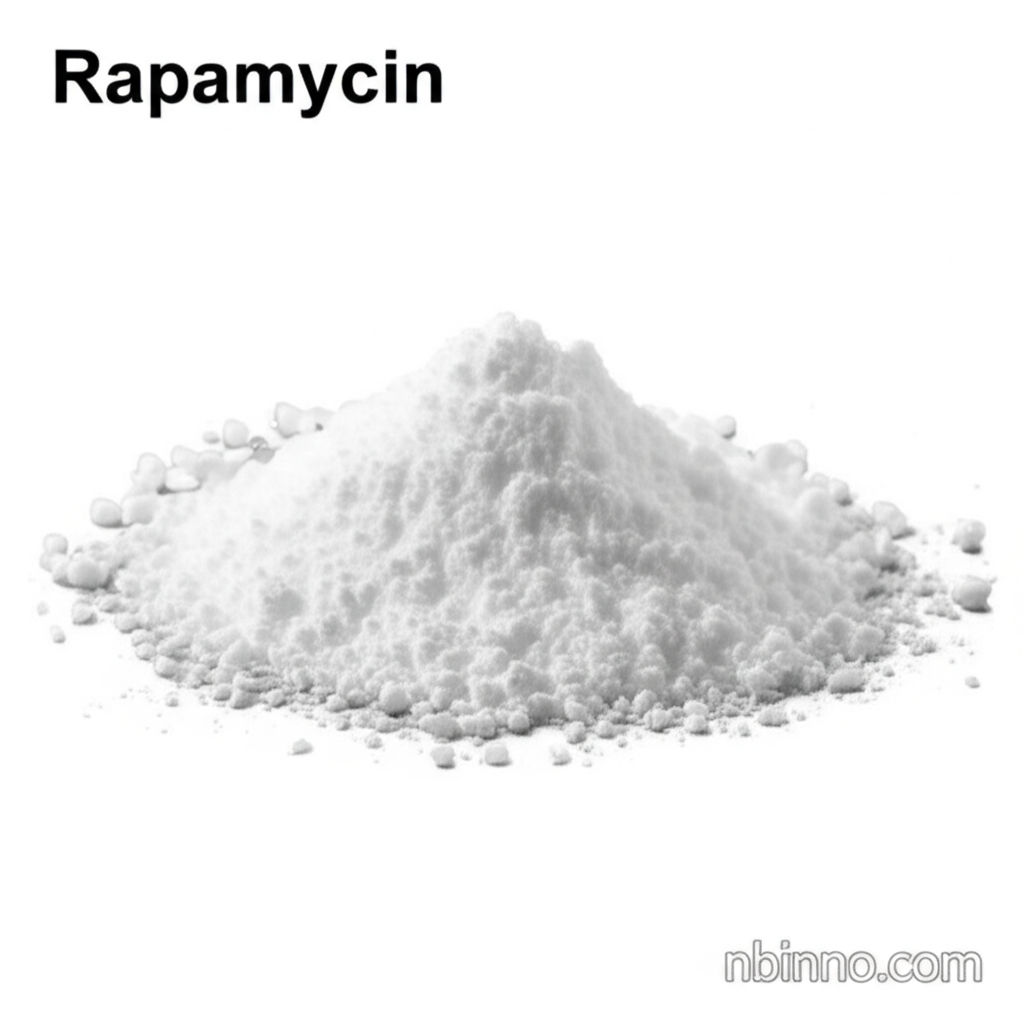Rapamycin: A Comprehensive Review of Its Pharmaceutical Applications and Immunosuppressive Properties
Explore the multifaceted role of Rapamycin, from transplantation to its potential in anti-aging and COVID-19 treatment.
Get a Quote & SampleProduct Core Value

Rapamycin
Rapamycin, also known as Sirolimus, is a macrolide compound with a complex structure and a wide range of biological activities. Its primary function as an immunosuppressant stems from its ability to inhibit T and B cell proliferation by interfering with the mTOR pathway. This action makes it invaluable in preventing organ transplant rejection, particularly for kidney transplants. Beyond its immunosuppressive capabilities, Rapamycin exhibits potent antitumor and antiproliferative effects, leading to its use in coating coronary stents to prevent restenosis and its investigation for various cancer treatments. Emerging research highlights its potential as an anti-aging agent and its role in managing diseases like lymphangioleiomyomatosis and even COVID-19.
- Rapamycin Immunosuppressant Properties: The drug effectively suppresses the immune system by inhibiting key signaling pathways, making it crucial for transplant patients.
- Sirolimus Anti-aging Potential: Ongoing studies explore Rapamycin's capacity to slow cellular aging and extend lifespan in various organisms.
- Rapamycin Mechanism of Action: Its core mechanism involves binding to FKBP12 and inhibiting the mTOR pathway, impacting cell cycle progression and protein synthesis.
- Rapamycin in Organ Transplantation: Rapamycin is a vital medication for preventing organ rejection, offering a crucial benefit in post-transplant care.
Key Advantages
Broad Therapeutic Spectrum
From preventing organ transplant rejection to its emerging roles in anti-aging and viral infection management, Rapamycin's clinical versatility is significant.
Targeted Immunosuppression
By specifically inhibiting T and B cell proliferation via the mTOR pathway, Rapamycin offers a targeted approach to managing immune responses.
Antiproliferative Action
Rapamycin's ability to inhibit cell proliferation is utilized in cardiovascular applications, such as coating stents, to prevent restenosis.
Key Applications
Organ Transplantation
Rapamycin is a cornerstone in preventing organ rejection, significantly improving outcomes for transplant recipients.
Cancer Treatment
Its antitumor properties make it a valuable agent in combination therapies for various malignancies, targeting cancer cell growth.
Cardiovascular Health
Rapamycin-coated stents help prevent restenosis, maintaining blood flow after procedures like angioplasty.
Rare Disease Treatment
The drug is approved for treating lymphangioleiomyomatosis, a rare lung disease, showcasing its efficacy in specific conditions.
